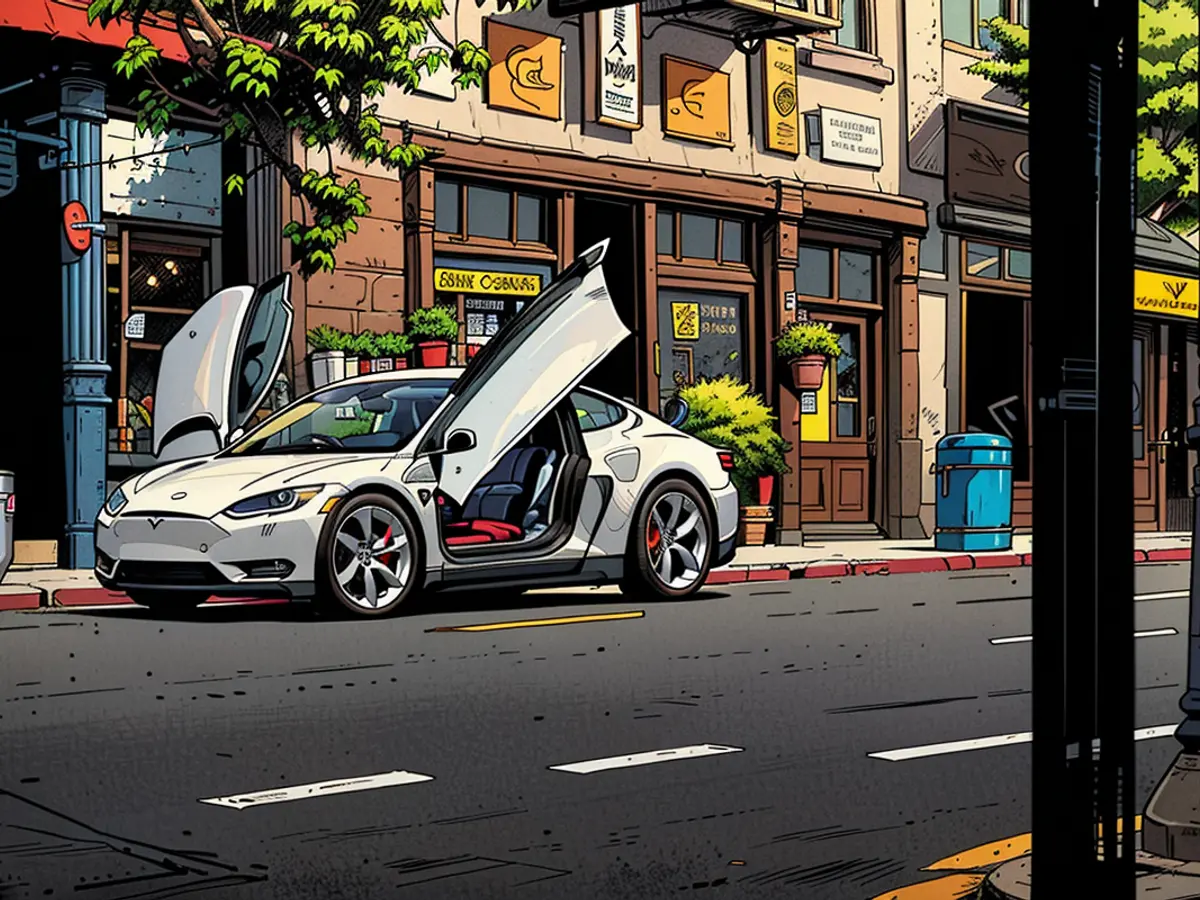Musk announces an annual production of two million robotaxi vehicles
From 2026, Tesla aims to manufacture millions of autonomous "Cybercabs" annually, with Elon Musk promising a more budget-friendly option in the near future. These announcements have sparked enthusiasm among investors. A potential re-election of President Trump could provide Musk with the means to surmount regulatory challenges.
Musk is once again expressing confident assurances about Tesla's ambition to dominate the self-driving car market. During the presentation of Tesla's latest financial reports, he announced plans to produce at least two million units of the robotaxi model "Cybercab" yearly. He added that the potential output could reach four million vehicles. Musk emphasized that this is his optimal estimate. Furthermore, he assured that all existing Tesla electric vehicles will have autonomous driving capabilities.
Musk confirmed that the robotaxi would start production in substantial numbers by 2026. Since 2016, Musk has been predicting that Tesla would soon have self-driving cars. However, Tesla's "Autopilot" software, even in its advanced form, is merely an assistance system where the human driver remains responsible and needs to be ready to intervene at any moment.
While Waymo, Google's sister company, is completing over 100,000 passenger trips per week in four US cities without human control, the costly additional technology installed in the converted Waymo Jaguars makes it challenging to generate profits.
Musk, however, aims to accomplish self-driving cars using cameras instead of more expensive lidar radars. If successful, Tesla would gain a substantial cost advantage and have several million capable vehicles on the road. However, many industry experts express doubts about its reliability.
Tesla's automated ride-hailing trial
Tesla is currently testing an automated ride-hailing service for employees in Silicon Valley, with human backup drivers behind the wheel. Despite some past missed deadlines, investors reacted positively to the news, and Tesla's stock rose by approximately 12% in after-hours US trading on Wednesday.
The "Cybercab" prototype displayed by Musk at a Hollywood show a couple of weeks ago had neither a steering wheel nor pedals. According to current US regulations, such vehicles can only be introduced in small numbers with a special permit. Regulations for self-driving cars vary from state to state.
Musk's potential political support
Musk's allegiance to former President Donald Trump, who is looking to secure another term in office, may play a role in this scenario. Trump suggested that, if he wins the election, he would assign Musk to head a committee responsible for federal spending. Musk pledged to lobby for nationwide regulations to approve autonomous cars "for everybody, not just Tesla." He confirmed that self-driving Teslas will hit the roads in Texas and California the following year.
By the first half of 2025, Musk also intends to launch a more budget-friendly Tesla model. Provided that there is no "major conflict" or "excessively high interest rates," this model will enhance sales growth by 20 to 30%. Musk explained. Tesla has repeatedly boosted sales, but it remains unclear if deliveries may decrease below the 1.8 million vehicles sold in 2024.
Cybertruck sales on the rise
During the last quarter, deliveries increased by 6% to around 463,000 vehicles. The majority of these, approximately 440,000, were the more affordable Models 3 and Y. However, the new electric pickup Cybertruck now occupies the third spot on the list of top-selling electric vehicles in the US, according to Tesla's announcement without providing specific figures.
Tesla barely met analysts' revenue projections for the quarter. Revenue climbed by 8% year-over-year to nearly $25.2 billion, just short of the anticipated $25.4 billion. Revenue from selling carbon credits to traditional automakers also impacted the revenue growth. In the automotive sector alone, revenue grew by 2% to approximately $20 billion.
All in all, Tesla's net income increased by 17% year-over-year to around $2.17 billion. Earnings per share, adjusted, were 72 cents - surpassing analyst estimates of 58 cents.
The manufacturing of Tesla's autonomous "Cybercabs" is a key focus for Musk, with aims to produce at least two million units annually from 2026. The Manufacture of motor vehicles is a significant part of Tesla's ambitious plans to dominate the self-driving car market.
Musk's plans for Tesla's self-driving cars include producing the robotaxi model "Cybercab" in substantial numbers by 2026, with a potential output reaching four million vehicles. This manufacturing process is a crucial part of Tesla's goal to have several million capable vehicles on the road.









